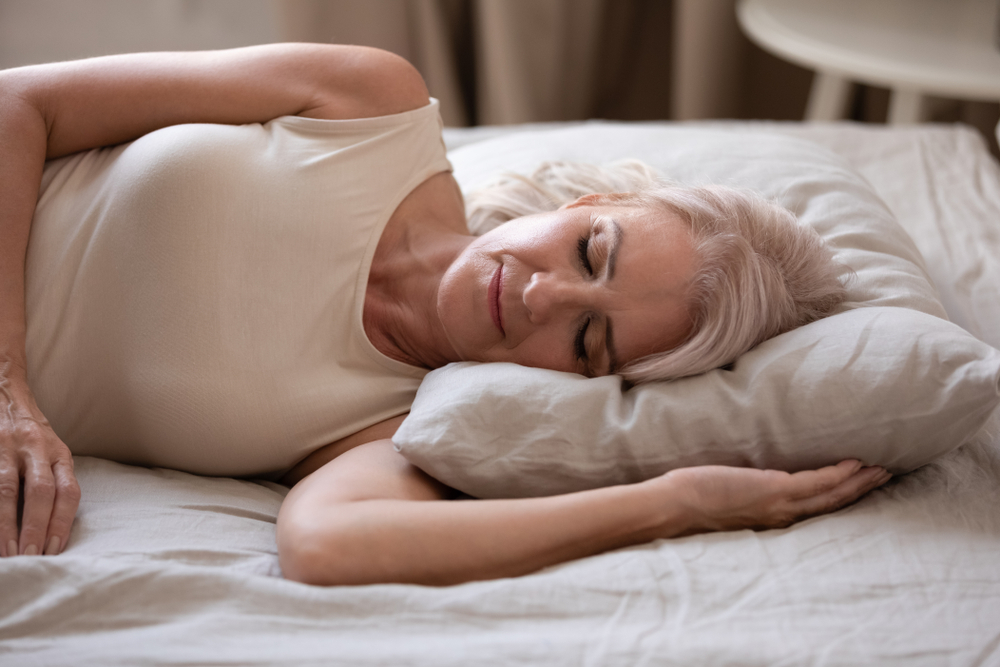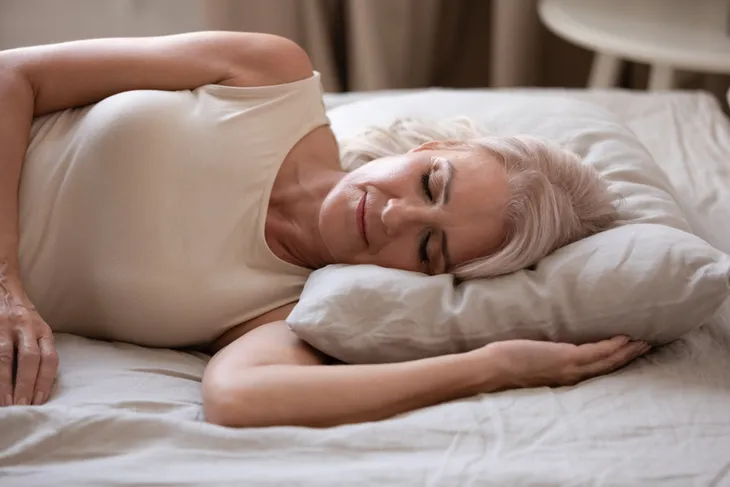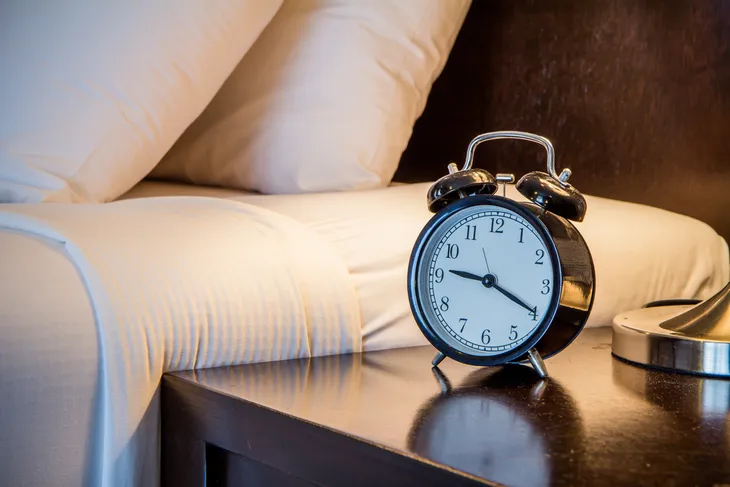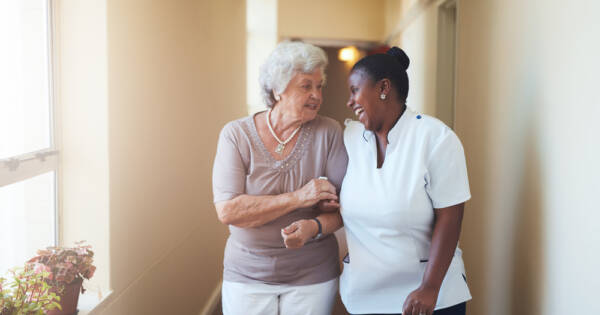As we age, not only do we experience physical changes but our sleep patterns can change too. Many older adults have reported that they have trouble going to sleep and staying asleep compared to when they were younger. Some of this may be due to medical conditions, untreated sleep apnea, and restless leg syndrome but it could also be linked to bad habits.
Healthy adults need about 7 to 9-hours of sleep per night. If you’re not getting enough sleep and you wake up feeling tired often then it might be time to reassess your daily and nightly habits. Check out these top sleeping tips for seniors that will help you get a better night’s rest!
Create a Relaxing and Inviting Environment
The first thing you need to do for yourself is to make sure you create a relaxing and inviting environment in your bedroom. There are a few ways you can create the ideal sleeping environment such as ensuring your room is free of clutter. Remove anything that reminds you of stressful responsibilities such as important documents or exercise equipment.
Another way to make your room inviting is to invest in a good mattress, pillows, and sheets that make you want to crawl into bed. Further, reducing your light exposure so your brain doesn’t think it’s daytime is also a good idea. You can do this by investing in blackout curtains, bedside lamps that have a softer light, or even an eye mask. Finally, keep your room as a place for sleep only.
Stick to a Sleep Schedule
Sticking to a regular sleep schedule plays an important role in how you feel but it is also important for your health. A study conducted by Harvard University found that people who strayed from their regular sleep time doubled their risk of cardiovascular disease within the next five years. Irregular sleep schedules may also put you at risk for obesity, high blood pressure, diabetes, and stroke.
It’s recommended that you stick to a regular sleep schedule and try your best to get to bed within the same 30-minute window every day. It’s also important to stick to your sleep schedule on the weekend. Over time, your body will get used to the routine.
Exercise Regularly
Exercise is an important part of a healthy lifestyle but it also plays a role in how well you sleep. Getting regular exercise can improve your quality of sleep, it can help you sleep longer, and it may even help reduce stress and relieve anxiety.
Physical activity makes you expend energy which in turn will make you more tired and ready to sleep by the end of the day. Seniors should aim to get about 30-minutes of moderate aerobic exercise such as brisk walking, most days of the week. You should also focus on strength training at least 2 days per week. Finally, other great ways to add activity to your day is to always take the stairs, parking further away from your destination, gardening, light exercise while watching tv, and biking and walking instead of driving when you can.
Avoid Late Afternoon Naps
Naps can be a good thing, and can actually help you feel more alert during the day. That said, there’s a right way and a wrong way to nap. Napping for approximately 20-minutes can help you feel refreshed while longer naps can leave you feeling groggy and more tired because you’re waking up from a deeper sleep.
Further, it’s also advised that you don’t nap late in the day even if it is for a short time. This is because it can interfere with your bedtime and keep you awake at night.
Avoid Caffeine and Alcohol Before Bed
Many people start their day with a morning cup of coffee but drinking too much caffeine can disrupt your sleep. Caffeine acts as a stimulant which can make it harder to fall asleep and can make you sleep more lightly too. The effects of caffeine can last from four to six hours and it needs about 24-hours before it is completely eliminated from your body.
Second, it would also be a good idea to avoid alcohol before bed too. While alcohol may make you sleepy and help you fall asleep, it will actually disrupt your sleep later in the night. This is because it can shorten the duration of your rapid eye movement sleep (REM) which is the stage of sleep responsible for dreams. While you don’t have to eliminate caffeine and alcohol from your diet completely just be sure to monitor your consumption and don’t consume it at least four hours before bed.
Drink Less Fluids Close to Bedtime
Drinking enough water and staying hydrated is very important but drinking fluids too close to bedtime can wreak havoc on your precious sleep. This can affect older adults even more because some develop an overactive bladder.
Some say eight glasses of water per day is a good goal to set for yourself but that number can change for each person. Be sure to stay hydrated all day long so that you’re not extra thirsty late at night. Finally, be sure to skip the water right before bed to prevent frequent trips to the bathroom during your sleep.
Avoid Large Meals Before Bedtime
Eating before bed doesn’t have to be a bad thing but you should be mindful of what you’re eating. Try to avoid large meals before bedtime especially carb-heavy meals because it can be harder for your body to digest when you’re sleeping. Further, try your best to avoid processed foods like chips, cookies, ice cream, and sugary junk food before bed.
Not only is it hard on your digestion but eating large meals right before bed may cause acid reflux, indigestion, and heartburn. It would be a good idea to give your body a few hours to digest your food before sleeping. You may also want to check out these foods that will help you sleep!
Spend Time Outside During The Day
Another great way to get better sleep is to spend more time outside during the day. A small study showed that time spent outside affects our circadian rhythm. For those that don’t know, the circadian rhythm is a natural, internal process that regulates our sleep and wake cycles.
The study showed that the levels of melatonin (a sleep hormone) shifted when the participants spent time outside. Spending time in the sunlight will let your body know when it’s time to be awake and when it’s time to be asleep. With all of that in mind, you might want to try going for more walks or relaxing outside when you can.
Address Your Snoring Issues
Snoring affects about 90-million American adults and 37-million on a regular basis. Snoring can even become more serious as you age so it’s best to address it as soon as possible. Firstly, if your partner is the one who snores this could wreak havoc on your sleep. You may even want to consider sleeping in a different room if you find your sleep is interrupted frequently.
Snoring not only disrupts your sleep but if it’s serious enough it could interrupt your breathing. This is called sleep apnea. Learn the signs of sleep apnea and be sure to speak with your medical professional to find out if it’s the root cause of your sleep problems.
Unwind Before Bed
Last but surely not least, one of the best things you can do to get a better night’s rest is to unwind before bed. Technology is great, but it can stimulate you which certainly does not help you unwind. Be sure to turn off your electronic devices such as a cell phone, tablet, and tv at least an hour before bed.
Find soothing, calming, and quiet activities to help you unwind before bed. Some great examples include reading a book, listening to music or yoga stretches. You may even want to take a warm bath to help you relax. Better yet, when you get out of the tub, your body temperature will drop which may help you feel tired. With all of these best practices, you’ll be getting better sleep in no time!













